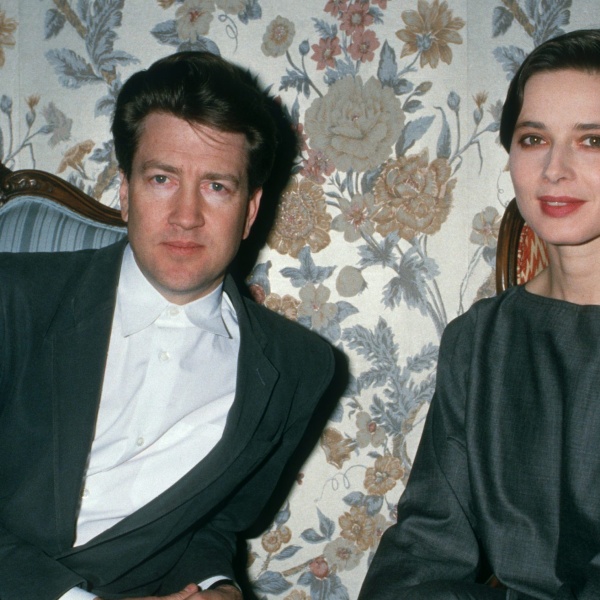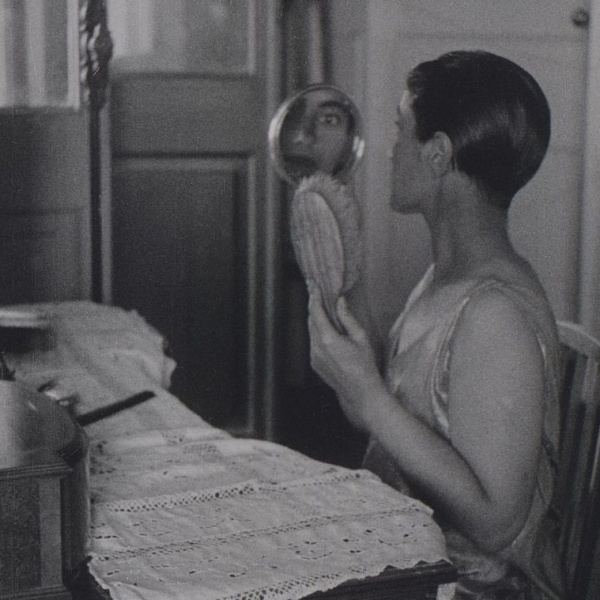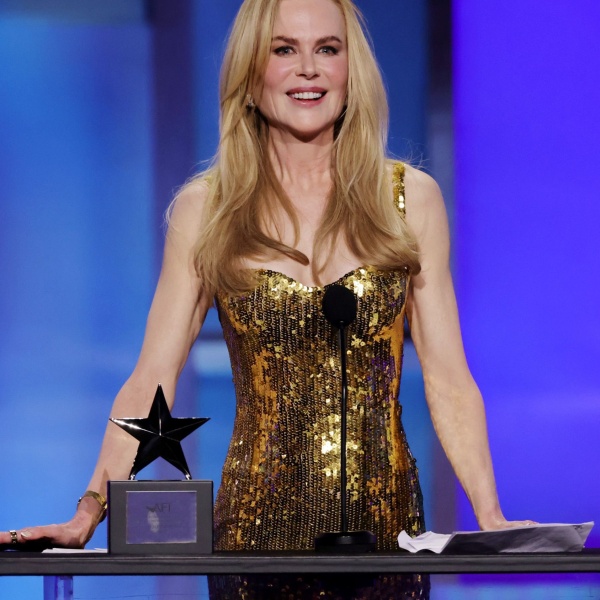The German language might get plenty of admiration for its ability to articulate complicated feelings and things (we’re partial to backpfeifengesicht, which basically translates to “a face begging to be slapped”), but don’t discount French for its similar refinement. Consider tristesse, which translates to “sadness, gloominess, dolefulness, dreariness, gloom,” and the like, but definitely sounds better than just “sadness.” It sounds chic, winsome, so French. Bonjour, tristesse? Oh la la indeed!
Such is the title of Françoise Sagan’s 1954 novel — written when the author was just 18, and thus the perfect age to write a story literally called “Hello, Sadness” — and of both a previous (very good) Otto Preminger-directed adaptation and Durga Chew-Bose’s clever new spin on the story at hand. While remakes can feel, by their very nature, like the worst kind of retread (to say nothing of remakes ofthings first made in another medium), Chew-Bose’s directorial debut is a sharp offering that adds to the mystique of the original material and makes a strong case for its own existence.
Chew-Bose’s power lies in her patience, as her script isn’t at all afraid to lull her audience into a state of not quite boredom, but at least ennui (the French! again!) before oh-so-gently steering us into a much more shocking, and ultimately satisfying space. While much of the film seems to be filtered through the haze of memory (and, later, regret), the emotions at its heart slowly click into place over the course of the film. The lessons, too.
Cécile (“Palm Trees and Power Lines” standout Lily McInerny) is wiling her summer away in pretty fab fashion: at her father’s luxe French beach house, where her days are spent cavorting in the surf with handsome neighbor Cyril (Aliocha Schneider) and her nights are dedicated to banal pursuits with her far-too-indulgent father Raymond (Claes Bang) and his latest girlfriend Elsa (Nailia Harzoune). Cécile’s mother (and Raymond’s wife) died 12 years ago, but that doesn’t really seem to bother either of them, as Elsa rightly notices that both of them are “very good at spending time.” Not always wisely, either, but spending it? You know it.
Not much happens to Cécile or Cyril or Raymond or Elsa, who all seem a little too obsessed with doing nothing, but glamorously, and being recognized for it. They all like to look at each other, at themselves, but only in the most short-sighted of ways. No one is thinking too hard about any of this — why should they? it’s summer! — and there seems to be no reason to change. What will happen when vacation is over? No one is thinking about that. At all.
Mostly, it feels like a memory — as if we’re trapped in a photo album of whatever Cécile happens to remember from that summer, a mish-mash of delightfully hazy moments and stilted, mannered lines. Chew-Bose leans heavily on not just the look of this season, all gorgeous light and perfect framing, but also its sounds. Butter scraping a piece of toast. A knife cutting cleanly through an apple. A smacking kiss. It doesn’t feel quite real, nor does it feel connected on a scene by scene basis. It’s whatever has drifted into Cécile’s mind, which we come to suspect is quite empty.
And then Anne (Chloë Sevigny) arrives. What we might initially suspect is just another pearl in a long string of lush, lovely memories instead becomes more of a knot. We know plenty about Anne before she arrives: she was best friends with Cécile’s mother, she might have had a bit of thing with Raymond, and oh, the three of them used to have such fun together. Anne, all severe, pulled-back buns and sharp clothes, doesn’t seem to have much fun anymore, and her arrival at the beach house quickly becomes far more fraught than anything else that has happened in the intervening weeks.
Cécile is not stupid, but she is silly — a fine distinction that McInerny, who is excellent in the role, is adept at navigating — and as Anne’s influence on her blissful home life takes a turn, the teenager is forced to make some changes. Notably (and, truthfully), that doesn’t include a sudden maturation or taking a greater interest in her responsibilities (Anne’s suggestion she might want to study more before she returns to school is greeted with disdain and derision), but in wildly shifting her allegiances and cooking up a questionable plan to do away with Anne and getting things back to whatever normal existed before her arrival.
While Sagan’s novel was written more than half a century ago (and Preminger’s film followed just four years later), not much has really changed since the advent of “Bonjour Tristesse” until now, at least when it comes to the craggy, crazy emotional landscape of being a spoiled teenage girl. For audiences familiar with the story, where Cécile and Anne end up will not surprise, but newbies will likely be shocked at the potency of Cécile’s teenage self-absorption. How could they be, though?
In one of her rare moments of self-reflection, Cécile complains to Cyril that her equally cunning and cruel plan to rid her and Raymond’s lives of Anne feels like “poison” inside of her. But was it always there? Or can she still find a way to get it out? Chew-Bose offers a sharp coda to what unfolds, while making it clear that Cécile has still failed to grasp the one truism of life we can never actually say goodbye to: we are only ever ourselves. No one grows out of that.
Grade: B
“Bonjour Tristesse” premiered at the 2024 Toronto International Film Festival. It is currently seeking U.S. distribution.
Want to stay up to date on IndieWire’s film reviews and critical thoughts? Subscribe here to our newly launched newsletter, In Review by David Ehrlich, in which our Chief Film Critic and Head Reviews Editor rounds up the best reviews, streaming picks, and offers some new musings, all only available to subscribers.






